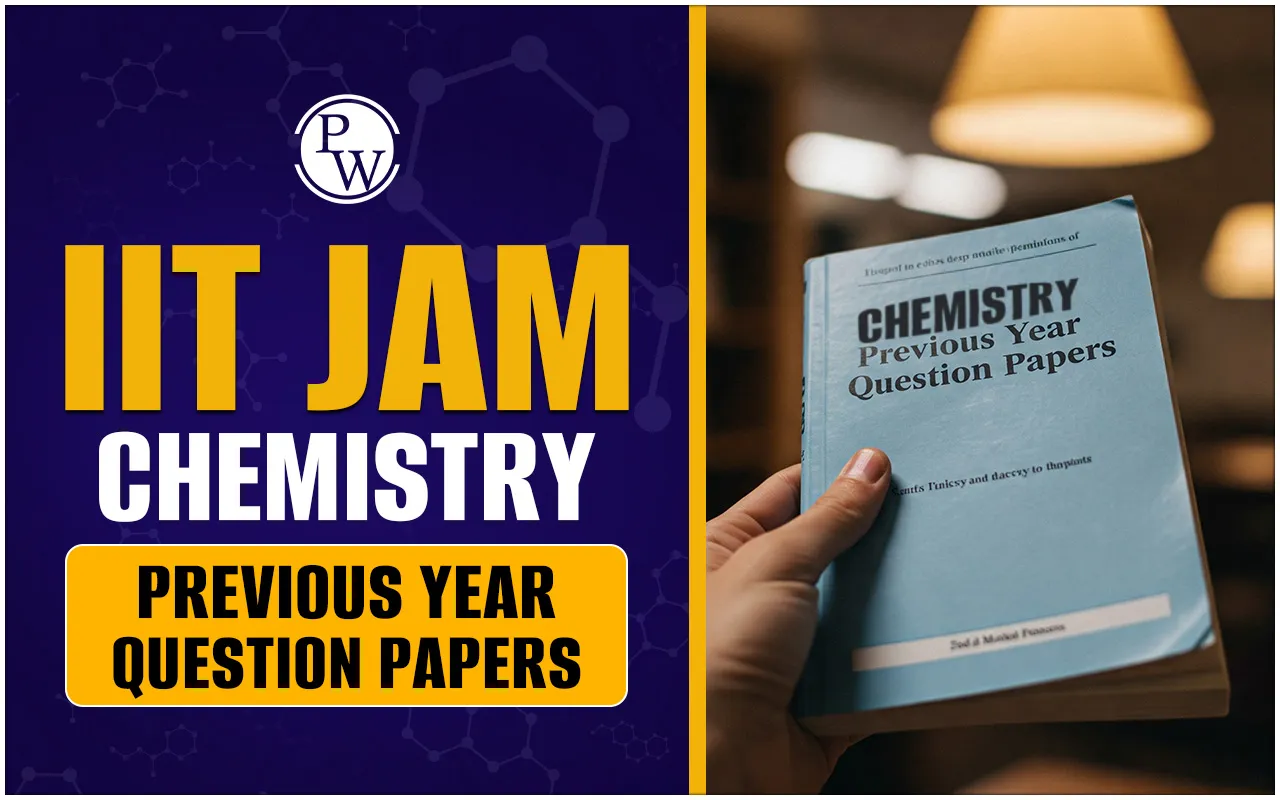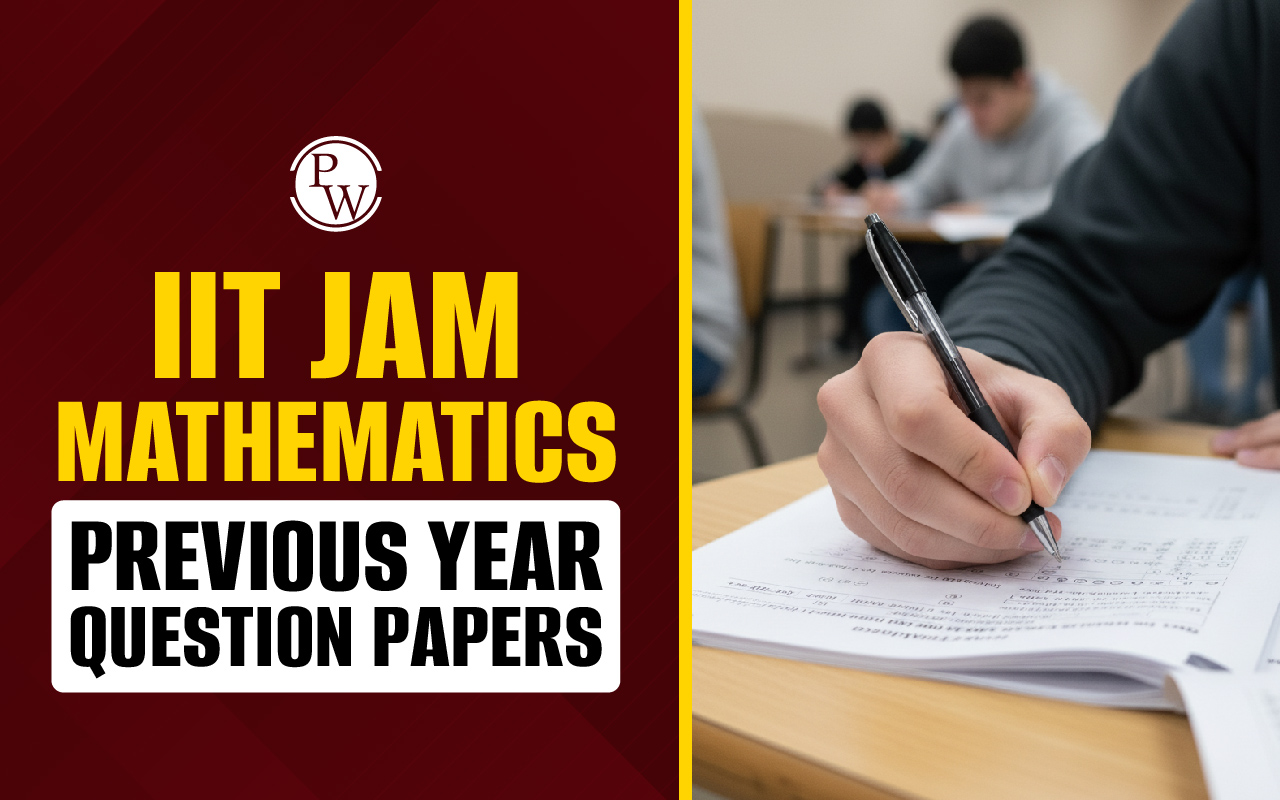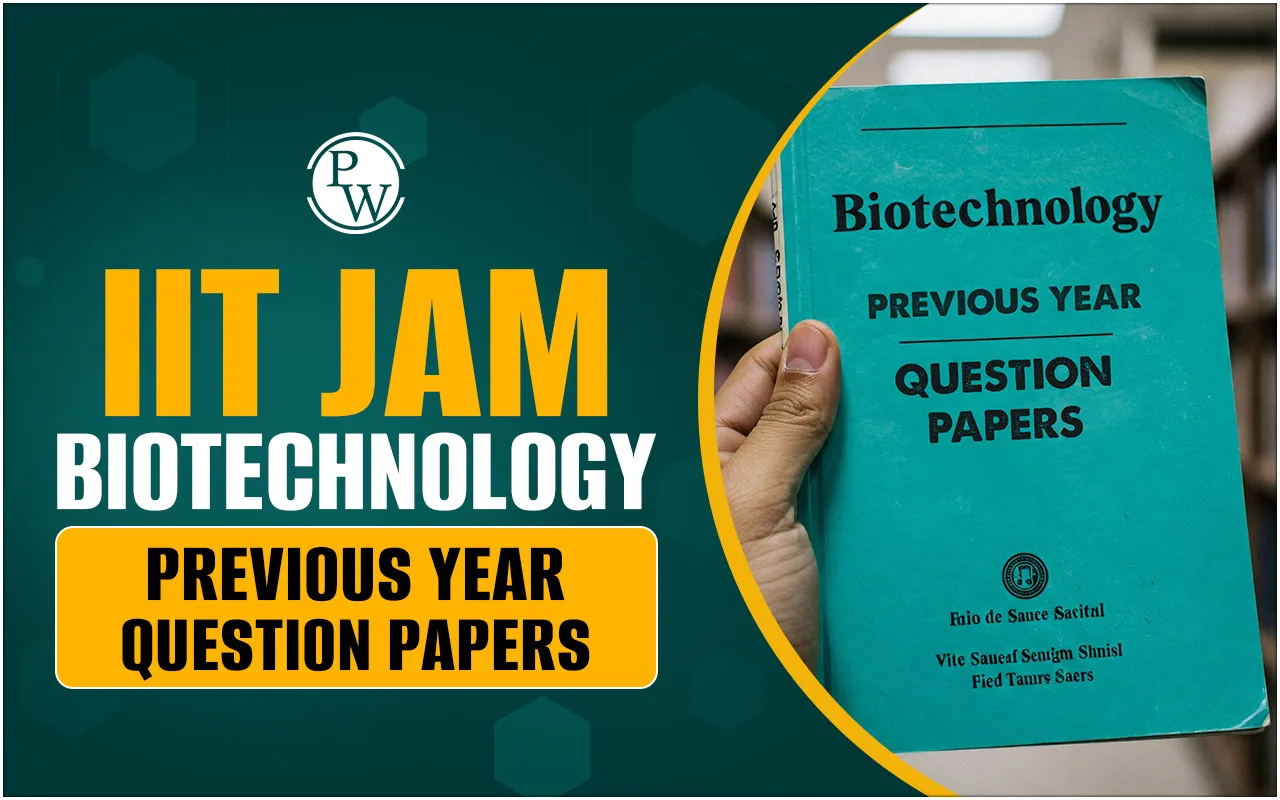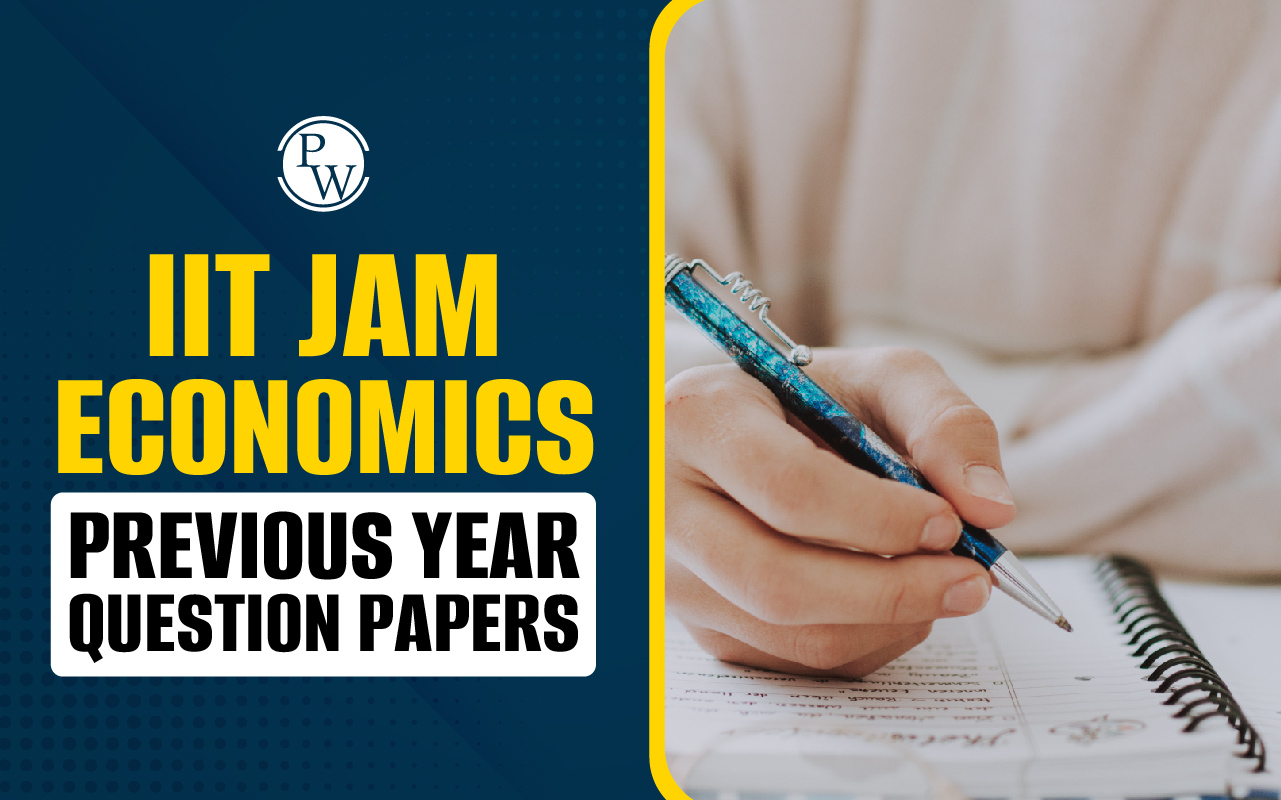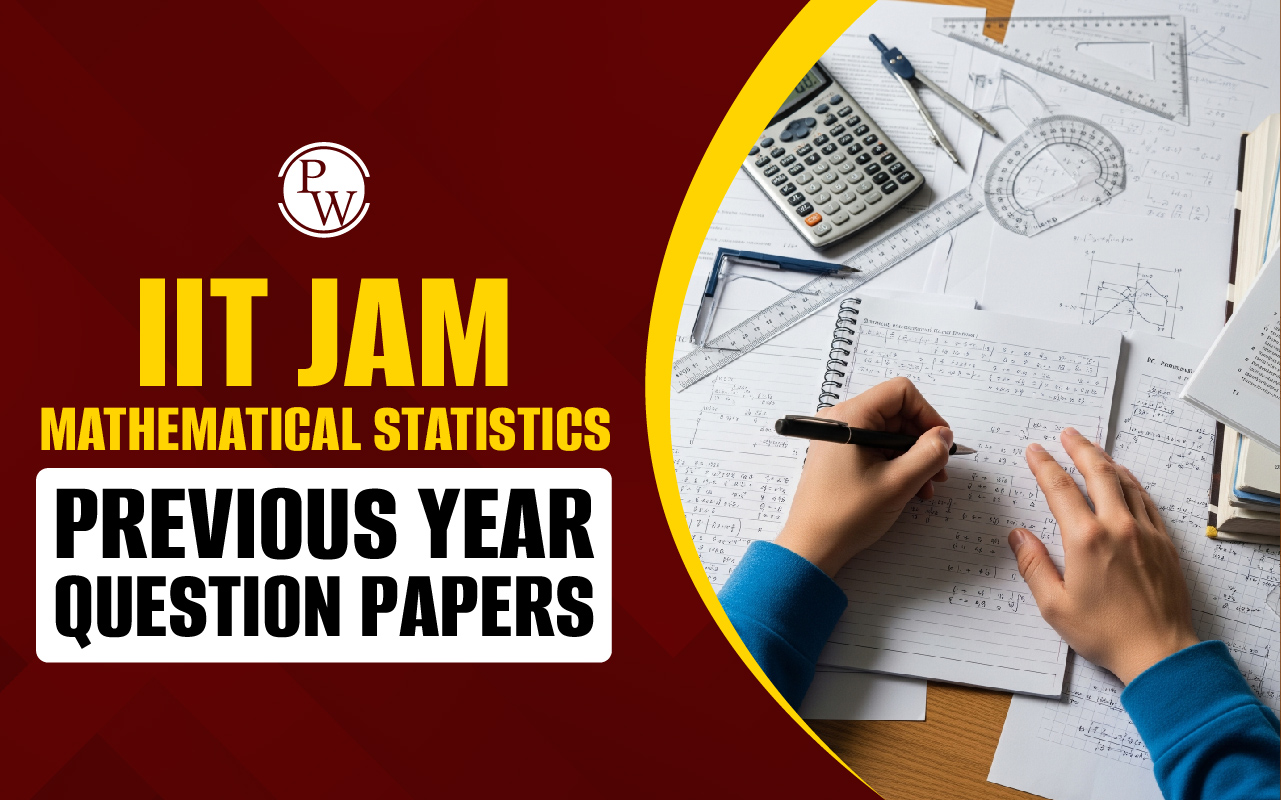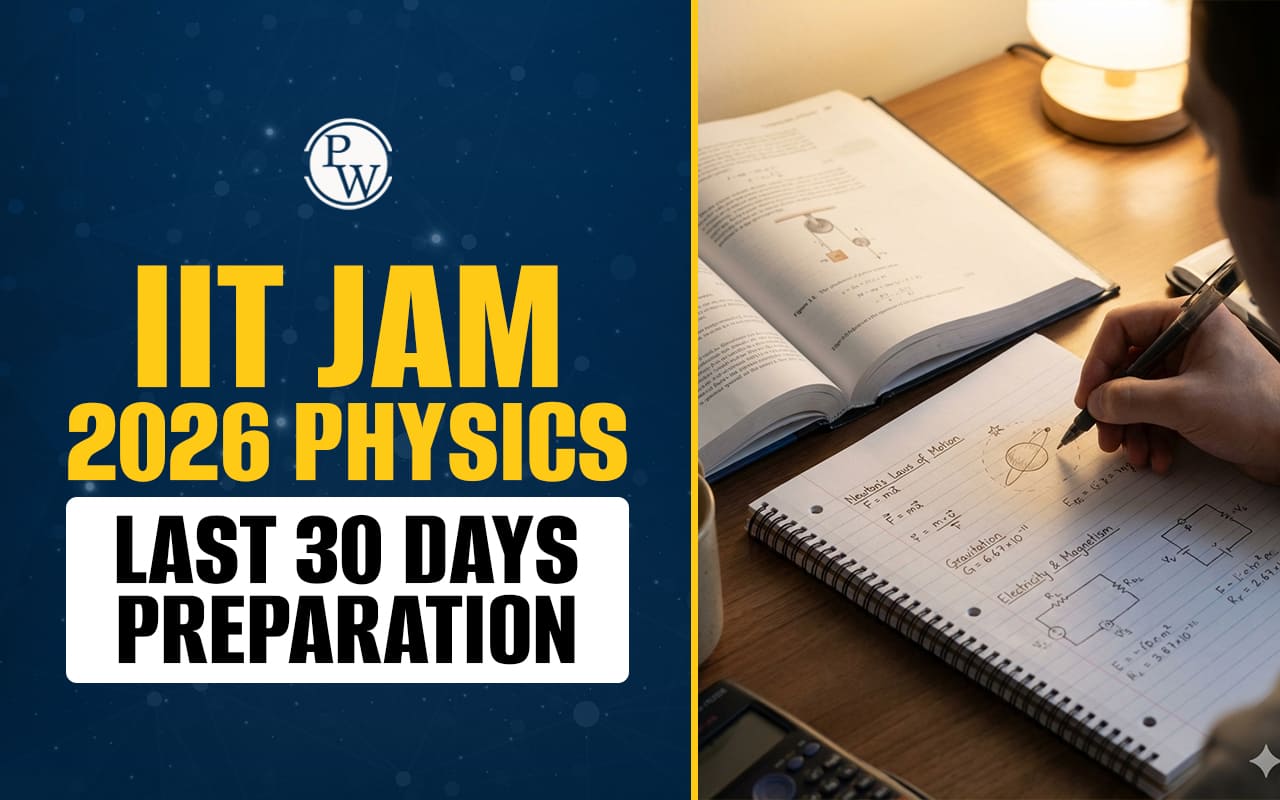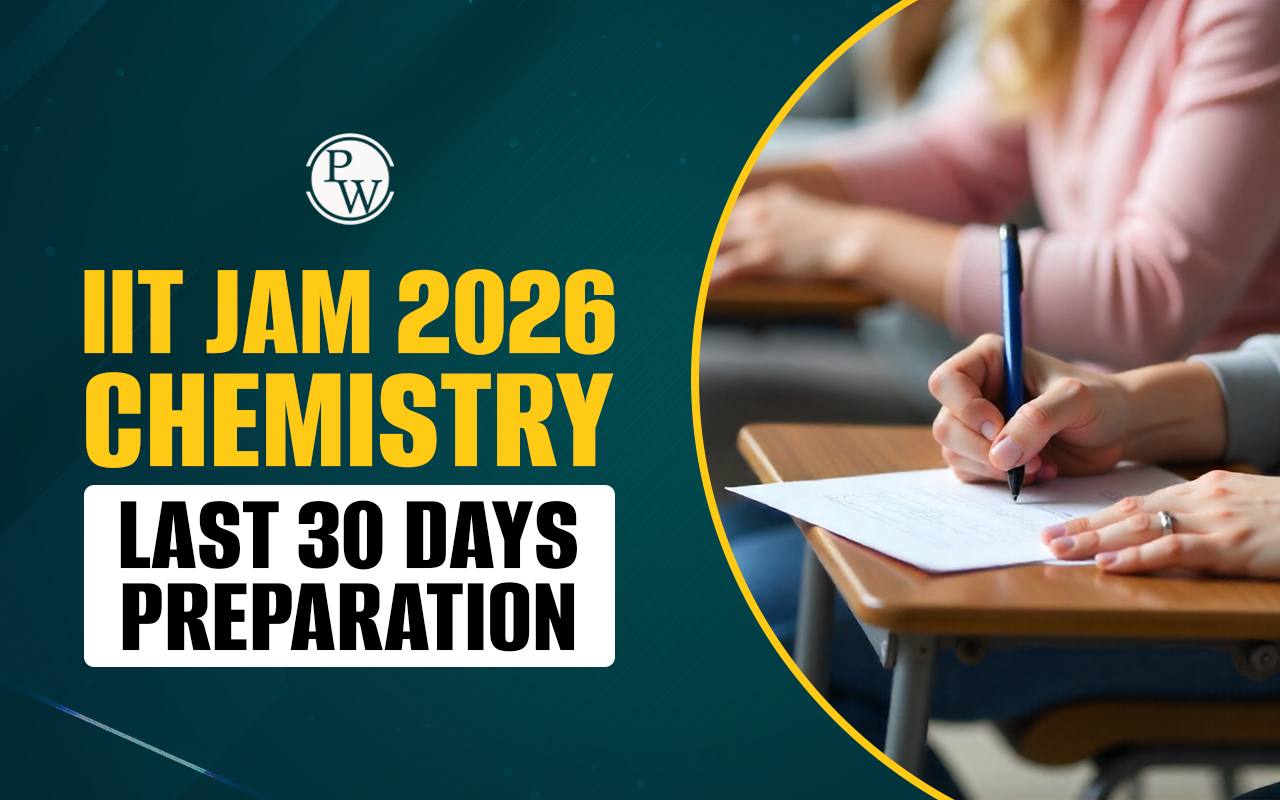
IIT JAM Mathematical Statistics Syllabus 2024: The Indian Institute of Technology (IIT), Madras, will conduct the Joint Admission Test for Masters (JAM) in 2024 on February 11. This exam is a gateway for postgraduate program admissions in several participating institutes. Eligible candidates are those who have completed their undergraduate degrees (BSc) or are in their final year of undergraduate programs. Those aspiring to pursue an MSc in Mathematical Statistics should intensify their studies to secure admission into prestigious institutions like IITs and NITs.
To excel in the IIT JAM Mathematical Statistics Exam 2024, candidates are encouraged to start their preparation early and engage in regular practice. Solving previous year's question papers can provide valuable insights into the exam pattern. By dedicating sufficient time and effort, candidates can attain high scores and secure admission into their desired institutes.
Moreover, candidates can access the detailed IIT JAM Mathematical Statistics Syllabus 2024 to gain a comprehensive understanding of the topics covered in the upcoming exam. This resource serves as a valuable guide for focused preparation, helping candidates succeed in their academic pursuits. Read the article to know more about the IIT JAM sectionwise syllabus of mathematical statistics and preparation tips.
IIT JAM Mathematical Statistics Syllabus 2024 Overview
The IIT JAM Mathematical Statistics Syllabus 2024 is divided into two distinct parts: Mathematics and Statistics. Mathematics has a 30% weightage, while Statistics has a 70% weightage in the examination. Candidates preparing for the Mathematical Statistics section can access the comprehensive IIT JAM Syllabus 2024 in the PDF link provided below. It is crucial for candidates to carefully examine the syllabus section wise before attempting the exam.
Additionally, candidates should be aware that the question paper will be divided into three sections, comprising multiple choice questions (MCQ), multiple select questions (MSQ), and numerical answer type questions (NAT). Here is the IIT JAM Mathematical Statistics Syllabus 2024 for detailed information:
| IIT JAM Mathematical Statistics Syllabus 2024 Overview | |
| Particulars | Details |
| Name of Examination | Joint Admission Test for Master’s (JAM 2024) |
| Exam Conducting Body | IIT Madras |
| Number of Questions | 60 questions |
| Duration of Exam | 3 hours |
| Language | English |
| Exam Mode | ComputerBased Test (CBT) mode |
| Total Duration of the Test | 3 hours |
| Number of Sections | 3 (Sec A, B, and C) |
| Question Type for the Test | MCQ, MSQ, and NAT |
| Total Marks | 100 |
IIT JAM Mathematical Statistics Syllabus 2024 PDF
Aspirants who intend to appear for the IIT JAM Mathematical Statistics 2024 Exam can access the official IIT JAM Mathematical Statistics Syllabus 2024 PDF on the official website here. Candidates must download the IIT JAM 2024 Syllabus PDF for their respective subjects to begin their preparation. To make this easier, we have provided direct links to download the IIT JAM Mathematical Statistics Syllabus 2024 PDF for all seven subjects below:
| IIT JAM Syllabus 2024 PDF | |
| Subject | Download Link |
| IIT JAM Syllabus 2024 Mathematical Statistics PDF | Click Here |
IIT JAM Mathematical Statistics Section Wise Syllabus 2024
The IIT JAM Syllabus 2024 Mathematical Statistics (MS) covers a wide range of topics, including Sequence and series, Real Numbers, Differential Equations, Calculus, Linear Algebra, Real Analysis, and more. Review the topics and subjects outlined in the syllabus carefully to ensure that you are prepared for the exam.
The Mathematical Statistics (MS) Test Paper covers the following topics: Mathematics (30%) and Statistics (70%).
IIT JAM Mathematics Syllabus 2024 for MS Exam
Check out the Topics included in the IIT JAM Mathematical Statistics Syllabus 2024 for Mathematics:
| IIT JAM Mathematics Syllabus 2024 for MS Exam | |
| Subjects | Topics |
| Sequences and Series of Real Numbers | Sequences of real numbers, their convergence, and limits, Cauchy sequences and their convergence; Monotonic sequences and their limits, Limits of standard sequences; Infinite series: convergence, divergence, and tests for convergence, Absolute convergence of series; Leibnitz's test for alternating series, Convergence of power series and radius of convergence. |
| Differential Calculus of One and Two Variables | Limits of functions of one real variable, Continuity and differentiability of functions of one real variable, Properties of continuous and differentiable functions, Rolle's theorem and Lagrange's mean value theorems, Higher order derivatives, Leibnitz's rule, and applications, Maxima and minima of functions, Limits, continuity, and differentiability of functions of two real variables, Partial differentiation and total differentiation, Constrained optimization techniques (with Lagrange multiplier). |
| Integral Calculus | Fundamental theorems of integral calculus (single integral), Leibnitz's rule and its applications, Differentiation under integral sign, Improper integrals, Beta and Gamma integrals: properties and relationships, Double integrals: change of order, transformation of variables, and applications, Arc lengths, areas, and volumes. |
| Matrices and Determinants | Vector spaces, subspaces, and linear independence, Algebra of matrices and standard matrices, Determinants: definition, properties, and applications, Adjoint and inverse of a matrix, and related properties; Rank of a matrix and row operations, System of linear equations: consistent, inconsistent, and solutions, Cramer's rule and characteristic roots and vectors, Cayley Hamilton theorem. |
IIT JAM Statistics Syllabus 2024 for MS Exam
Check out the Topics included in the IIT JAM Mathematical Statistics Syllabus 2024 for Statistics:
| IIT JAM Statistics Syllabus 2024 for MS Exam | |
| Topics | Topics |
| Probability | Random experiments, sample space, and algebra of events, Axiomatic and relative frequency definitions of probability, Addition theorem, conditional probability, and Bayes' theorem, Independence of events and pairwise independence, Geometric probability, Boole's and Bonferroni's inequalities, Probability mass function (p.m.f.) and probability density function (p.d.f.), Moments, mean, median, mode, variance, standard deviation, and measures of skewness and kurtosis. |
| Standard Univariate Distributions | Degenerate, Bernoulli, binomial, negative binomial, geometric, Poisson, hypergeometric, uniform, exponential, double exponential, gamma, beta, normal, and Cauchy distributions: properties, interrelations, and limiting cases, Moment generating function (m.g.f.) and its properties, Markov and Chebyshev inequalities, Bivariate normal distribution: marginal and conditional distributions. |
| Multivariate Distributions | Joint and marginal c.d.f.s, p.m.f., and p.d.f. of random vectors, Conditional c.d.f., p.m.f., and p.d.f, Independence of random variables, Distribution of functions of random vectors, Mathematical expectation and moments of functions of random vectors, Joint moment generating function and its properties, Conditional moments, expectations, and variance, Additive properties of binomial, Poisson, negative binomial, gamma, and normal distributions. |
| Limit Theorems | Convergence in probability, convergence in distribution, and their relations, Weak law of large numbers and central limit theorem (i.i.d. case) and their applications, Sampling distributions, order statistics, and distributions of sample maxima and minima, Central chi-square, t-distribution, and Snedecor's F-distribution: definitions, properties, and relationships. |
| Estimation and Testing of Hypotheses | Unbiasedness, sufficiency, completeness, consistency, and relative efficiency of estimators, Maximum likelihood estimation and method of moments, Confidence intervals for parameters of normal and exponential distributions, Null and alternative hypotheses, type I and type II errors, and power of a test, Most powerful and uniformly most powerful tests, Neyman-Pearson Lemma and likelihood ratio tests. |
IIT JAM Mathematical Statistics Syllabus 2024 Preparation Tips
Preparing for the Mathematics and Statistics section of the IIT JAM Syllabus requires a strategic approach to grasp the essential concepts effectively. To excel in this subject, candidates must adhere to some key principles:
- Familiarity with the Entire Syllabus: A strong foundation in the subject starts with a thorough understanding of the entire syllabus. Candidates should meticulously go through each topic to comprehend the primary concepts.
- Create a Comprehensive Study Plan: Crafting a well-structured study plan is crucial. Allocate sufficient time to cover all the topics in the syllabus over several months. A systematic approach ensures that no area is left unexplored.
- Enhance Problem-Solving Skills: Mathematics and Statistics in IIT JAM demand strong problem-solving abilities. Regular practice with diverse problem sets is essential. Focus on understanding the logic behind the solutions to tackle complex problems effectively.
- Emphasize Probability, Variables, and Distributions: These core areas need special attention. Probability theory, various types of variables, and probability distributions are fundamental components. Devote extra time and effort to grasp these topics thoroughly.
- Theorems and Formulas Mastery: Familiarity with the theorems and formulas is indispensable. Practice applying them in different contexts to enhance problem-solving proficiency. Regular revision is key to retaining this information.
- Systematic Formula Compilation: Compile all the formulas systematically. Maintain a formula notebook and practice them daily according to a set timetable. Regular practice ensures that the formulas are ingrained in memory.
- Effective Note-Taking: While studying the theorems, jot down essential points. Create concise, bold notes highlighting key concepts. These notes serve as quick references during revision and help reinforce the crucial topics.
- Solve Previous Year Papers: Solving previous years' question papers provides insight into the exam pattern and helps identify essential topics. It also aids in understanding the level of difficulty expected in the exam.
- Mock Tests and Sample Papers: R egularly take mock tests to assess your preparation level. Simulate exam conditions and time constraints. Additionally, solve sample papers to familiarize yourself with the types of questions asked.
- Regular Revision: Continual revision is vital to solidify your knowledge. Set aside dedicated time to revise all the areas of the syllabus periodically. Revision ensures that concepts are retained and readily accessible during the exam.
By adhering to these principles, candidates can build a strong foundation in Mathematics and Statistics, ensuring a confident and competent performance in the IIT JAM exam.
IIT JAM Mathematical Statistics Syllabus 2024 FAQs
What are the subjects for IIT JAM 2024?
Who will conduct IIT JAM in 2024?
Is 6 months enough for IIT JAM?
How to study for IIT JAM mathematical statistics?


